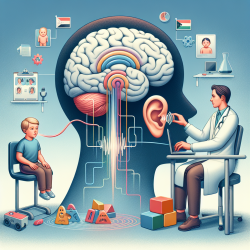The Critical Role of Autism Research in Enhancing Practitioner Skills
Autism Spectrum Disorder (ASD) affects approximately 1 in 88 children in the United States, leading to lifelong challenges in social communication and behavior. Despite its prevalence, autism research has historically lagged behind other psychiatric and medical conditions. However, recent advancements have opened new pathways for understanding and treating ASD, offering valuable insights for practitioners.
Understanding the Etiology of Autism
The etiology of ASD is believed to involve a complex interplay of genetic and environmental factors. Genetic abnormalities, such as copy number variations, are identified in a significant fraction of individuals with ASD. As gene sequencing technology advances, the number of genes associated with autism is expected to increase, offering new avenues for diagnosis and treatment.
For practitioners, staying informed about genetic research is crucial. Understanding the genetic underpinnings of ASD can aid in identifying subgroups of individuals with unique biological abnormalities, paving the way for more targeted interventions.
The Importance of Behavioral Interventions
Behavioral interventions have shown potential benefits in managing ASD symptoms. The work of Dr. Bernard Rimland and colleagues in the 1970s highlighted the neurodevelopmental nature of autism, emphasizing the role of behavioral strategies. Practitioners should prioritize evidence-based behavioral interventions to improve cognitive functioning and language skills in children with ASD.
Implementing these interventions requires a data-driven approach. Practitioners should focus on measurable outcomes and continuously evaluate the effectiveness of their strategies to ensure optimal results for their clients.
Challenges in Medical Treatment
Medical treatments for ASD have had limited success, particularly in addressing core symptoms such as social reciprocity and communication deficits. This may be due to the heterogeneity of subject groups in clinical trials. Smaller, more homogeneous trials may yield better results, highlighting the need for practitioners to consider individual differences when recommending treatments.
Practitioners should also be cautious of adopting new therapies without adequate evidence. Rigorous testing and validation are essential to avoid potential harm to individuals receiving interventions.
The Future of Autism Research
Autism research is not only vital for individuals currently affected by ASD but also for understanding broader neurodevelopmental disorders. Collaborative efforts, such as the Autism Genetics Resource Exchange and the Autism Clinical Trials Network, are accelerating genetics findings and large-scale field testing of therapies.
Practitioners should engage with ongoing research and consider participating in studies to contribute to the growing body of knowledge. By staying informed and involved, practitioners can enhance their skills and improve outcomes for children with ASD.
To read the original research paper, please follow this link: The importance of autism research.










